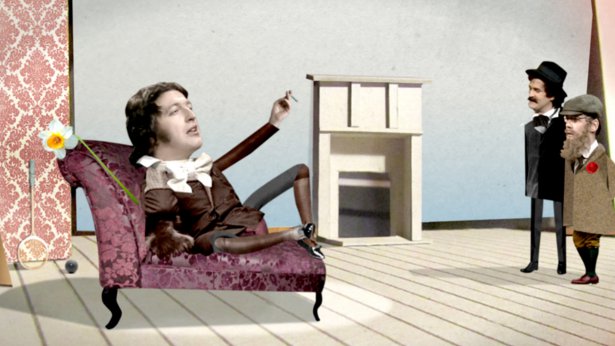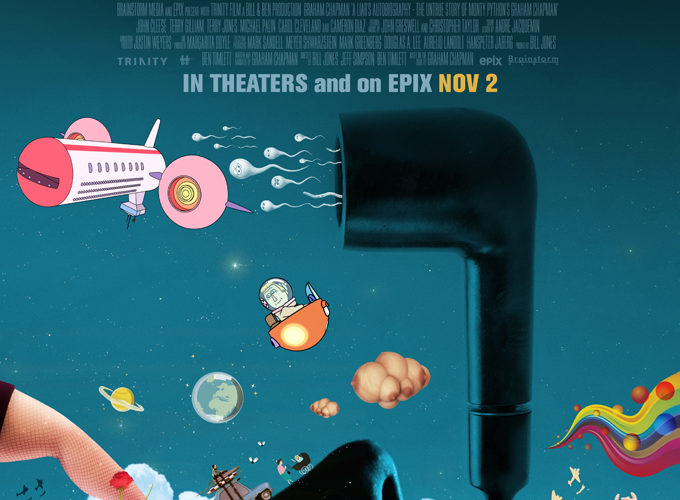The most important thing to keep in mind about A Liar’s Autobiography: The Untrue Story of Monty Python’s Graham Chapman is that this is a Graham Chapman film, not a Monty Python film. Based on the fictionalized book of his life, A Liar’s Autobiography (Volume VI) written by Graham Chapman (and David Sherlock, Alex Martin, Douglas Adams, and David Yallop), this film was produced more than two decades after his death and used recordings of his audiobook readings to voice the animated characters.

The narrative told by Graham Chapman in this film resembles streams of consciousness, rather than a coherent chronological biography. It is extremely fragmented, fictionalized, and it skims on subjects that could have been more developed. His childhood, homosexuality, and alcoholism are expanded in A Liar’s Autobiography. However, these subjects are weakly told, as the accompanying images do not help to enhance the story. Although intended to be funny, some of the images are not at all humorous and are either taken completely out of context or vulgar, which trivializes Chapman’s obstacles as a celebrity. Some styles did, however, prove to be successful in evoking certain emotions. For example, Chapman’s alcoholic terror is illustrated with oil on glass, an appropriate medium to convey a character’s psyche.
Directors Bill Jones, Jeff Simpson, and Ben Timlett hired fourteen animation studios to create scenes of seventeen different visual styles. These ranged from drawn animation, oils on glass, cutouts, Flash, computer-generated work, to stop-motion puppetry. Terry Gilliam, a paper cutout animator of Monty Python, opted out of animating a sequence in this film. Because of this, the directors prohibited the animation studios to replicate Gilliam’s style. Although creative, the use of various animation styles hinders the overall project, creating a scattered tone. Some sections prove to be whimsical and delightful, but several were immature in skill.

Five out of the six Pythons (Graham Chapman, John Cleese, Terry Gilliam, Terry Jones, Michael Palin) lent their voices to various roles of the film, ones that Chapman did not provide in his audiobook reading. Although together for A Liar’s Autobiography, they were not united as Monty Python. Chapman actually talked very little about his time with this British comedy group. A side note: Cameron Diaz voiced Sigmund Freud. You can decide if this decision lives up to the standards of Monty Python humor. Although A Liar’s Autobiography: The Untrue Story of Monty Python’s Graham Chapman is told in a strange narrative and visual way, it lacks depth and humor, a shame for any Monty Python fan, who will ultimately walk away in disappointment after this unfulfilling film.


